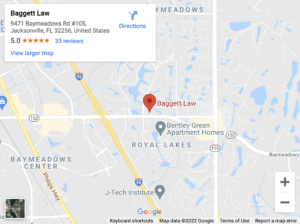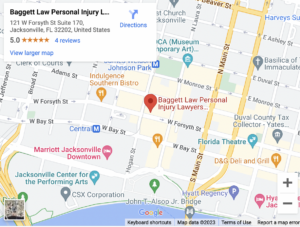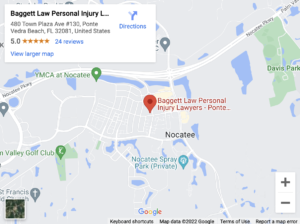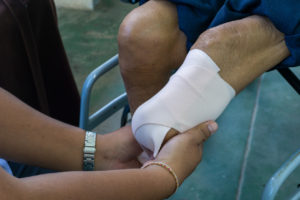
Over 2 million Americans have lost a body part to amputation. Many of these amputations have a minimal physical impact on the amputee. Losing part of a finger or toe will cause trauma. But it probably will not permanently disable you.
Other amputation injuries require substantial surgery, physical therapy, medication, and mental health counseling. These amputation injuries could leave you disabled, disfigured, and traumatized.
Here are some facts about an amputation injury and what you need to prove to get injury compensation.
Why Do Amputations Happen?
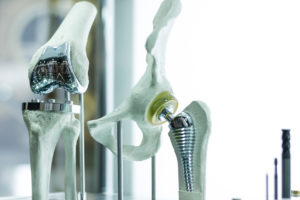
In the 21st century, you might think that medical technology has advanced beyond amputations. While doctors can often save a severed or mangled body part, they can only do so much.
Sometimes a body part suffers too much damage to repair before tissue begins to die. Once cells die, the risk to your life from leaving the limb outweighs the disabilities you may have from removing it.
Every cell in your body needs oxygen. Cell metabolism requires oxygen to generate the energy cells need to live. Without oxygen, cells die. The rate at which they die depends on the type of cell.
Nerve cells tend to die quickly. Your brain can only last a few minutes without oxygen before it suffers permanent damage. On the other hand, muscle cells can survive six to eight hours without oxygen before suffering irreversible cell damage.
When trauma damages your body’s tissues, the likelihood of amputation depends on which tissues get damaged and the severity of the damage. Your limbs contain several different types of tissues that perform various functions:
Bones
Bones provide structure to your body. They also support your body weight and give your muscles leverage as they move your body.
Ligaments
Ligaments connect bones. Your joints usually include at least one ligament to hold the bones that meet at the joint together. These ligaments work with the skeleton to provide structure. They also provide flexibility when you bend or extend the joint.
Muscles
Muscles provide strength and movement. When your brain tells your body to move, it signals muscles.
Tendons
Tendons anchor muscles to bones. The tendons give the muscles leverage over the bones to move your body.
Nerves
The nerves carry motor signals from your brain to your limbs. They also carry sensory signals from your limbs to your brain.
Blood Vessels
Blood vessels carry blood to your tissues. There, the blood delivers oxygen and carries away waste products like carbon dioxide. Blood vessels feed every other type of tissue, including bones.
What Types of Amputation Injuries Can Happen?
Amputation injuries fall into two broad categories:
Surgical Amputations
Surgical amputations happen when doctors remove tissue that has suffered irreparable damage. This can happen for a few reasons.
If the bone gets shattered, doctors may not have the time to reconstruct the bone and restore its blood supply before it dies. Doctors might not find all of the bone fragments to reconstruct the bone and may not be able to fill in the gaps with a bone graft. Or the bone fragments might be too small to reconstruct the bone.
You might have lost a significant amount of muscle in the accident. Doctors may recommend amputation rather than having a significantly disfigured and unusable limb.
Your limb might have been trapped in a machine or tool in a workplace accident. If the pressure on your limb ruptured cells or cut off circulation to them, tissue death might have already started.
Your accident might have mangled your blood vessels. If doctors cannot restore circulation to your tissues, they will eventually die.
When body tissues die, they undergo a chemical change. This change triggers gangrene, an infection that results from tissue decomposition. If you develop gangrene in your injured limb, you will die. Oftentimes, doctors act preemptively by amputating a limb that has or will likely suffer tissue death and gangrene.
Traumatic Amputations
Amputations can also happen during an accident. A construction accident with a saw could, for example, sever a finger.
In some situations, doctors can reattach a traumatically amputated limb.
But the likelihood of success can depend on several factors, including:
- Damage to the limb and the stump
- Contamination of the limb or the stump
- Time elapsed before reaching a hospital
- Which limb got severed
If the limb or stump got mangled when the limb was torn from the body, doctors will likely repair the damaged stump rather than attempt to reattach the limb.
What Are Some Amputation Injury Complications?
Amputations often develop complications, including:
Infection
Infections happen when bacteria enter an open wound. The bacteria destroy cells and release toxic chemicals. In response, your body triggers swelling to trap the bacteria and a fever to kill them.
You can become very sick from an infection. If the infection spreads, you can die from it.
Phantom Limb Syndrome
Phantom limb syndrome happens when you experience sensations and pain that appear to emanate from your missing limb. As many as 80% of amputees experience phantom limb syndrome.
Phantom limb happens when the nerve endings in your stump experience pain. Your brain uses an outdated map that places those nerve endings in your amputated limb. You feel as though the sensation comes from the missing limb beyond your stump.
Emotional Trauma
About 30% of amputees experience depression. Depression can stem from many causes, including a sense of loss, fear of the future, and despair over your health and finances. In many cases, depression will require therapy or even medication.
What Compensation Can You Receive for an Amputation Injury?
If your amputation injury happened at work, Florida law might limit you to seeking workers’ compensation benefits unless a third party contributed to your injury. But if you suffered an amputation injury in an accident unrelated to work, you must prove negligence to recover compensation.
To do this, you must show that the other party failed to exercise reasonable care and, as a result, caused your injury.
An amputation injury could justify substantial economic and non-economic damages. You will likely require expensive medical treatment and therapy for your injuries. Your amputation injury might produce permanent disabilities that prevent you from working. And your trauma could cause pain, mental anguish, and disfigurement. Contact the Baggett Law Personal Injury Lawyers to schedule a free consultation to discuss the damages you can seek for your amputation injury.


